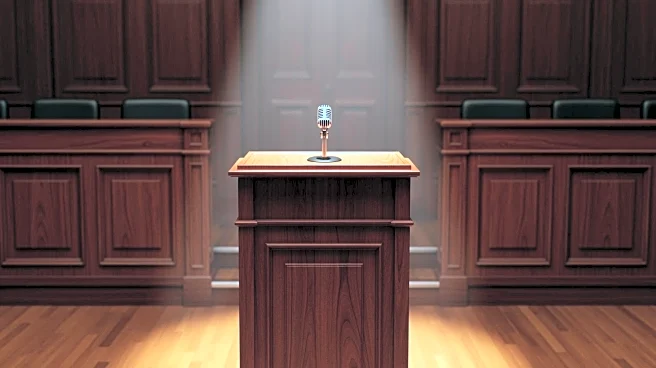What's Happening?
President Trump has moved to cancel nearly $5 billion in congressionally approved foreign aid and peacekeeping spending through a rare 'pocket rescission.' This maneuver, which hasn't been used in 48 years, allows the president to request fund cancellations late in the fiscal year, effectively bypassing congressional approval. The funds affected include development assistance, contributions to international organizations, and peacekeeping activities. The legality of pocket rescissions is debated, with the Government Accountability Office deeming them illegal, while Trump's Office of Management and Budget argues otherwise.
Why It's Important?
The cancellation of foreign aid could have significant implications for U.S. diplomatic relations and international development efforts. It may affect the country's ability to influence global peacekeeping and humanitarian initiatives. The use of pocket rescissions raises questions about executive power and the checks and balances between the legislative and executive branches, potentially setting a precedent for future administrations.
What's Next?
Legal challenges may arise as stakeholders contest the legality of the pocket rescission. The Government Accountability Office could potentially sue, although uncertainties exist regarding the agency's authority. The decision may prompt discussions in Congress about the Impoundment Control Act and the limits of presidential power in budgetary matters.








